A general comparison of content management systems (CMS) can be misleading. There is no such thing as a good or bad CMS.
Instead, it's about being more or less suitable for the organization's goals.
Thus, it can either support business development or slow it down and, in extreme situations, even sabotage it.
A CMS should be tailored and matched to the business goals and type of website. And the choice itself should be made using several essential criteria.
A CMS ideal for a blog, a business card site, or a small portfolio will certainly not be as efficient and convenient for managing content on an elaborate corporate website.
Therefore, deciding whether WordPress is better than Django Admin, which system comes out better from the confrontation – WordPress vs. Django – will always be of little practical use.
Nothing will result from such a comparison because it'll not bring an answer to the fundamental question, which may sound like the title of our article.
The comparison of Django vs. WordPress doesn't make sense unless we link the features of these systems to specific business needs. To the particular needs of users and administrators of such content management systems.
While in the case of blogs and business card sites containing a small portfolio, the matter is quite simple, in the case of complex websites – for example, corporate sites – it is no longer so obvious.
Thus, which CMS is worth choosing when creating a corporate website? What challenges will arise from using a given solution?
Who will emerge victorious in the Django vs. WordPress clash? What content management system or technology tools do we recommend for creating, managing, and developing corporate websites?
We will answer these questions in the following article. We cordially invite you to read it.
Designing corporate websites and portals
It's necessary to start with a decent definition of corporate websites because they are often confused with company websites or landing pages. And they are, after all, a separate category with their own rules.
The corporate website differs from product pages and company pages primarily in terms of its:
- Content
- An objective that it is supposed to achieve
- Information architecture (presentation of content and functionality)
- Navigation
- Target audience and users.
Corporate websites contain specific content, primarily to inform and promote.
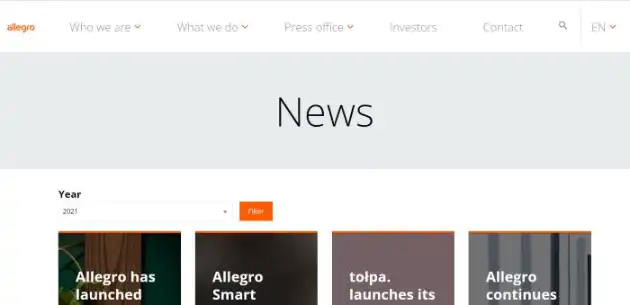
And in their most typical form, they don't serve to sell products or to advertise an organization. They aren't created to inform about individual brands, products, or services.
Corporate websites focus on the business as such. They focus attention on the entire organization, not on selected areas of it.
Information provided through the corporate site primarily addresses issues such as:
- Sales results
- Forwarding current reports
- Informing about plans and actions taken
- Informing about adopted strategies and planned investments.
Corporate websites talk about the organization, its condition, its position, and its plans.
They familiarize users with its goals, methods, tools, procedures, results, and values. Their main objective is to provide reliable information.
First of all, it's all about the needs of an organization:
- Its business results,
- Its reliability and credibility,
- Its social needs (related to corporate social responsibility – CSR).
A corporate website or portal serves owners, shareholders, and investors. It is aimed at business partners, journalists, and, last but not least, employees.
Sometimes among the target audience, people representing competing companies are also mentioned.
In the case of the latter recipients, it's all about gaining a psychological advantage over competitors.
Important, but not always included, are also representatives of authorities at various levels who use the available data for verification and validation purposes.
They're related to controlling and promoting companies, cities, regions, and countries.
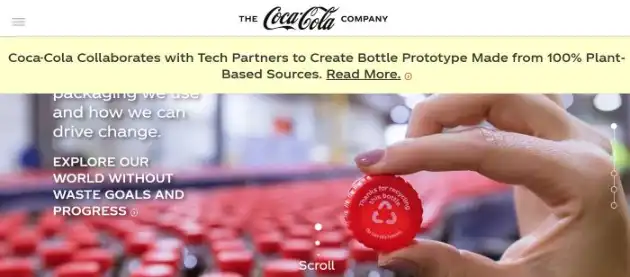
Corporate sites are also a very natural and helpful tool for journalists who use the information material to write their articles.
A reliable, comprehensive data source makes it possible to control the information published in the press.
A corporate portal, thus, primarily fulfills the following:
- Representative role
- Image role (it's accomplished by strengthening trust and credibility, promoting ethical, conforming to formal and informal norms activities)
- Informational role (fulfilled through reliable, comprehensive, and fair communication)
- Persuasive role.
A corporate portal, first and foremost, serves the company's shareholders, investors, and business partners, who can learn about reports, statements, analysis, and index results thanks to it.
Its design should therefore be focused on precisely defining typical use cases.
A quick reminder. Use cases are descriptions of interactions that a user makes on a website. The idea is to specify the goals he wants to achieve and the methods he uses to accomplish them.
In other words, navigation should allow users to find and present relevant content easily.
In a minimum number of intuitive steps, it should be possible to get to the desired content, which should be presented in a way that is as consistent as possible with the user's expectations.
In the case of corporate sites, the problem of use cases, paths, interactions, navigation, and content is all the more critical as corporate websites are extremely "lively."
They are updated very frequently; content is added and removed. The site's structure changes, new subpages appear, and old ones are sometimes either heavily modified or removed altogether.
The dynamics of content and structure changes inevitably require finding a suitable content management system to keep it under control.
A CMS adapted to the needs of a corporate website should make content management processes sensible and, above all, effective in terms of the following:
- Time required to perform a given action
- Necessary work – the number of individual actions leading to the desired goal
- Necessary competencies.
The less time, effort, and specialists a given activity requires, the more appropriate a given content management system is.
Editing data in WordPress and Django
The corporate website design should focus on meeting different target audiences' needs.
That is why the issues of accessibility, structuring, presentation, and speed with which information is offered on the corporate website are very important.
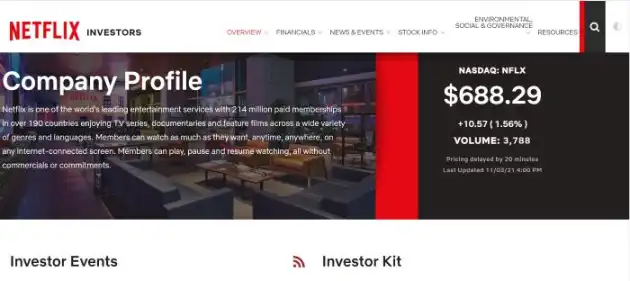
Other significant issues are volatility and the need to update published content constantly.
They raise the problem of effective, fast, fortunate content management and offer new information, materials, data, and functionalities.
Let's look at a common issue encountered by employees managing corporate portals.
Since a lot of the information published on corporate websites is duplicated on individual subpages, managing their editing becomes a significant issue.
And since we are talking about editing data, we will get caught up in the problem of efficiency and error-free editing in a content management system.
For example, let's take contact information or data regarding months, days, and working hours, which frequently change in many corporations.
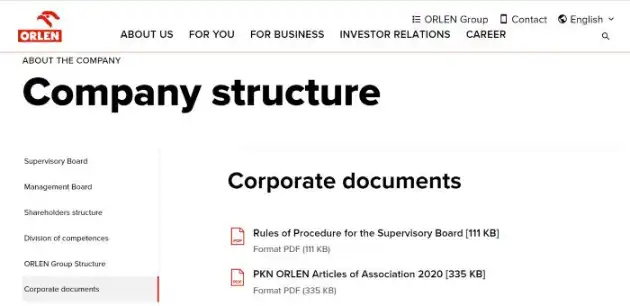
According to the design recommendations of corporate websites, this kind of data should be provided in multiple places. Their availability is crucial. Users appreciate their constant availability.
How does Django Admin deal with this issue?
In terms of the efficiency of editing such data Django is doing much better than its rival. It provides a panel where we can define recurring, editable elements easily placed in the structure of a given subpage.
If we want to change a particular piece of information, we don't have to do it in each place separately. Editing a recurring element is enough. In Django Admin, this is incredibly effortless.
In WordPress, the situation isn't so obvious and requires ingenuity and patience on the side of the person administering the site's content.
WordPress' plug-ins are famous for their instability, incompatibility with the latest version of the platform, and extreme sloppiness when it comes to security.
Data orientation (Django Admin), as opposed to template orientation (WordPress) above all, streamlines and speeds up the editing process and makes it much less susceptible to errors.
Even more importantly, errors are easier to catch (all it takes is a single-source verification) and fix (editing them in a single source is enough).
Django Admin has definite advantages: speed, ease, and error-free management of repetitive data.
While we're talking about speed, we also have to mention the relationship between page loading speed and content management system. CMS directly influences Core Web Vitals, and Google's latest algorithm is a significant factor from an SEO perspective.
Core Web Vitals – WordPress vs. Django
We wrote about the relationship between Core Web Vitals and User Experience in a separate article, "Google Algorithm Introduces Page Experience." While we don't want to repeat ourselves, we'll just briefly remind you what Google's new search engine algorithm is all about.
Google has recognized the importance of User Experience for a very long time, and Core Web Vitals are just an expression of its concern for the experience that web users have.
The new algorithm analyzes a website in terms of its usability, security, accessibility, design, responsiveness, and page loading speed.
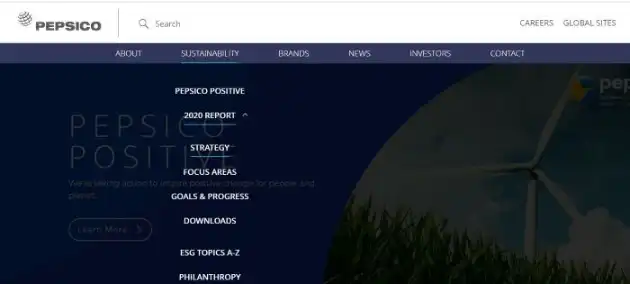
All these elements, these issues are more or less interlinked. Just like the speed with which pages and subpages load are tied to the content management system we choose.
Metaphorically speaking, WordPress tends to get fatter and significantly slows down page loading as the number of plug-ins installed grows.
Django Admin is a CMS that is characterized by being in good shape and being fit over a long period of time.
It's worth remembering that the more a content management system depends on third-party plug-ins (as with WordPress) developed by various developers (commercial and open-source), the more problematic it becomes in Core Web Vitals.
As the amount of code grows with each plug-in (and its update), a corporate site based on such a CMS will load slower and slower, be vulnerable to security threats and perform worse and worse.
Google's algorithm isn't exceptionally responsive to the arguments of WordPress supporters. Usually, it doesn't recognize their justifications and rates the UX of these CMS-based websites as low or very low.
A system developed by using a variety of plug-ins simply slows down at some point. It's more unreliable and offers a worse user experience.
It becomes problematic in terms of the following:
- Speed
- Performance
- Safety
- User Experience.
The relationship between CMS and SEO shouldn't be underestimated because Core Web Vitals is one of the factors which the Google search engine considers. As Google promises, its importance will grow.
Thus, we should expect that Core Web Vitals and similar ways of evaluating websites in terms of usability and User Experience will increasingly influence the website's position in the search results.
Maintenance and development of corporate website content based on WordPress and Django Admin
Let's start with a commonly shared opinion. The content management system offered by Django provides a much more efficient, faster, and more secure solution for managing a corporate website.
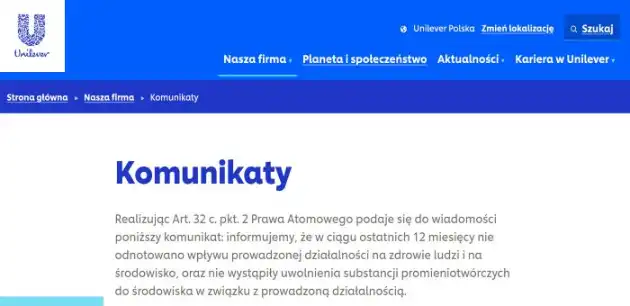
The consensus around this issue isn't accidental, and it should be noted that this kind of agreement isn't a normal situation either.
Website administrators and content managers appreciate Django Admin primarily for the:
- Ability to quickly integrate with applications available within the Django framework
- Intuitive and friendly interface
- Ease of creating different language versions of a corporate site
- Optimal workflow (editing, publication)
- Flexible management of permissions granted to different users
- Versioning – every modification to the content of a page is saved so that it can be easily restored to any state
- Ability to manage multiple pages using a single panel
- Ability to add applications to different pages
- Built-in authentication and solutions to the most common security flaws.
Of course, the usefulness and relevance of Django Admin don't end there.
Among the most important factors to consider when choosing a CMS are also such features as:
- Back-end UI
- Digital Asset Management (DAM)
- End-user experience
- SEO optimization
- Personalization
- Responsiveness
- Workflow.
The intuitive user interface in Django Admin allows you to manage your content easily, edit various resources, and save time.
And this is directly related to the need to store, organize, share and search for these resources. Such as images, animations, video files, audio
The Digital Asset Management offered by Django Admin makes these activities feel effortless.
In the case of corporate websites users, it's also vital for the CMS to provide the following:
- Expected
- Consistent
- Adequate
- And effective experience for website users.
A corporate website, as we mentioned above, needs to deliver the desired content to a very diverse audience, which also means it needs to be personalized in terms of:
- Distribution channel
- Form
- User flow
- Consistency of content across channels and within a given channel.
Nevertheless, an important expectation of corporate website administrators is to offer SEO-Friendly functionalities that make it possible to optimize published content in terms of requirements formulated by the Google search engine.
Therefore, in Django's content management system, it's possible to create:
- Search engine-friendly URLs
- Sitemap (sitemap.xml).
A modern CMS (in terms of information architecture, quality, market needs, services, and the ability to combine different aspects of the business), and Django Admin is undoubtedly such a system, should be capable of user segmentation based on multiple data sources.
Finally, the CMS should allow administrators to track, manage and approve content at various stages of the publication process.
It should offer the possibility to define and assign workflows according to the criteria of topics, languages, and authors of publications.
And here, Django also proves to be a much more efficient and adequate system for managing a corporate website. It's often offered in different languages and managed by multiple administrators.
WordPress vs. Django. Recommended CMS for corporate website
Django Admin is an almost ideal tool for corporate portals, which are usually characterized by a complex structure, numerous tabs, significant dynamics of content change, and the need for frequent updates, editing, and adding new content subpages.
In a nutshell, corporate websites, as elaborate and functionally demanding sites in terms of content management, are almost a model example of the relevance of a CMS that must meet requirements for high performance, stability, and security.
Django Admin allows you to create, manage, and optimize content easily and quickly. Like the Django framework, recommended for large, complex, and demanding portals, Django Admin, is designed with such projects and needs in mind.
Django Admin is also recommended whenever there is a need to integrate custom functionality, making it possible to fulfill and achieve more sophisticated business goals.
Taking into account the need for up-to-date, credible, and reliable information published on a corporate website, it's extremely important to choose a CMS that will offer a high level of data security.
Again, Django Admin is far superior to WordPress in terms of corporate security (business, legal, image). It offers much more effective methods of securing corporate sites.
WordPress vs. Django. Recommended CMS for corporate website. Summary
- A general comparison of content management systems tends to confuse rather than clarify. It creates more dilemmas and doubts than it offers clear, unambiguous answers.
- There is no such thing as a good or bad CMS. Instead, some are appropriate, and some aren't for a given type of website, for meeting a given company's business needs.
- A Content Management System should be tailored and matched to the business goals and type of website.
- The functionalities of the chosen CMS should match the type, features, requirements of the website, and role that the website will play in the organization.
- The comparison of Django vs. WordPress doesn't make sense if we don't link the features of these systems to specific business needs (e.g., security) and particular needs of users and administrators. That is because these two solutions are built on different technologies and philosophies.
- A corporate website differs from product websites and company sites primarily by its: content, the purpose it's supposed to achieve, information architecture, navigation, target audience, and users.
- Corporate websites serve primarily to inform and promote.
- They don't serve to sell products or to advertise an organization. They are not created to inform about individual brands, products, or services.
- The information shared on the corporate site mainly covers sales results, provides current reports, informs about plans, taken actions, adopted strategies, and planned investments.
- A corporate portal, first and foremost, serves the company's shareholders, investors, and business partners.
- The design of a corporate website should therefore be focused on typical use cases.
- The problem of use cases, paths, interactions, navigation, and content is all the more important as corporate websites are extremely "lively."
- The dynamics of content and structure changes inevitably require finding a suitable content management system to keep it under control.
- A CMS adapted to the needs of a corporate website should make content management processes sensible and, above all, effective in terms of time, work, competencies, and the possibility of cooperation with other people.
- Issues of accessibility, structuring, presentation, and speed with which information is offered on the corporate website are very significant.
- Core Web Vitals is just an expression of concern and appreciation for the importance of User Experience.
- WordPress tends to get fatter and significantly slows down page loading as the number of plug-ins installed grows. WordPress' UX in this dimension is disappointing.
- Django Admin is in good shape and is characterized by being fit over a long period of time.
- The more the content management system is dependent on external plug-ins, the more problematic it becomes in Core Web Vitals.
- A system created with a variety of plug-ins at some point slows down, is much more unreliable, and offers a worse user experience.
- The importance of Core Web Vitals will grow.
- The content management system offered by Django provides a much more efficient, faster, and more secure solution for managing a corporate website.
- Django Admin is an almost ideal tool for corporate websites, which are usually characterized by a complex structure, numerous tabs, significant dynamics of content change, and the need for frequent updates, editing, and adding new content and subpages.
- Like the Django framework, recommended for large, complex, and demanding portals, Django Admin, is designed with such projects and needs in mind.
- Django Admin offers much more effective methods of securing corporate websites than competitive solutions.




